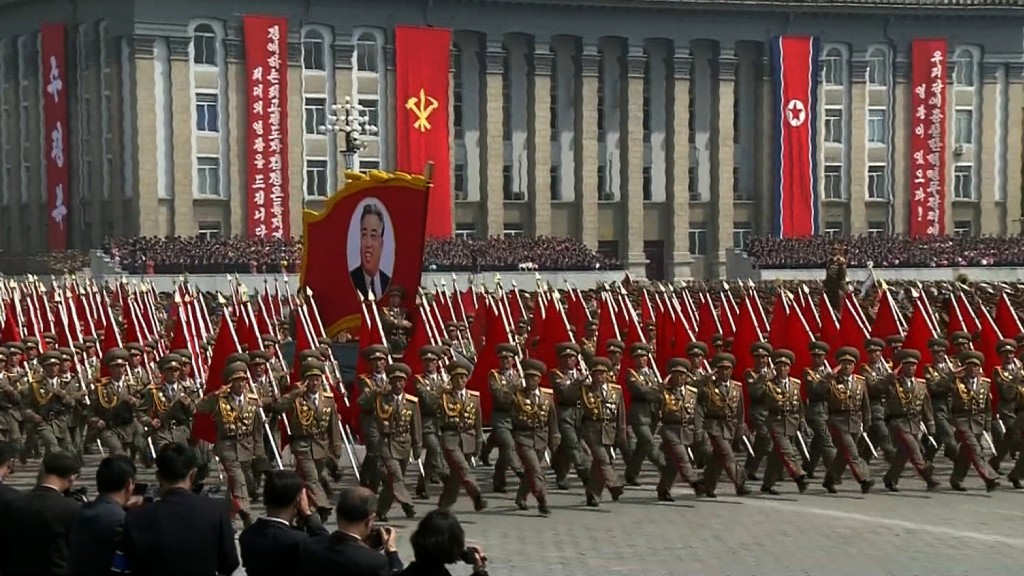
YouTube has caused an outcry by shutting down North Korean propaganda channels that were used by researchers to better understand the secretive nation.
Analysts say the axed channels provided vital information that helped them follow the movements of Kim Jong Un, advances in North Korea's weapons programs and other important developments.
"Basically, this hurts efforts to track activities of interest in a closed country -- at the worst possible time," tweeted Joshua Pollack, a nonproliferation expert at the Middlebury Institute of International Studies.
Tensions between North Korea and the U.S. have spiked this year as Kim's regime advanced its nuclear weapons program and President Trump responded with fiery rhetoric.
The shuttered YouTube channels played clips from state TV and other North Korean content.
One channel run by Uriminzokkiri, a North Korean government propaganda website, had racked up millions of views. It was "terminated due to a legal complaint," according to a short message posted by YouTube.
Videos published on Uriminzokkiri's channel have made headlines around the world, including one in 2013 that appeared to show an imagined missile attack on U.S. government buildings in Washington.
North Korea analysts have studied all kinds of footage put out by the channels, searching for clues about missiles and other military hardware. The videos also help them understand what the North Korean regime is telling its people -- and what messages it might be trying to send to foreign governments.
"These North Korean videos are ... indispensable sources of information for us on the outside," Curtis Melvin, a researcher at the U.S.-Korea Institute at Johns Hopkins University, wrote in an open letter Tuesday to Google (GOOGL), YouTube's parent company.
Melvin told CNNMoney that the closure of Uriminzokkiri and a second channel -- Tonpomail -- represented a "serious loss." Tonpomail was controlled by ethnic Koreans in Japan who are loyal to Pyongyang, he said.
Related: North Korea is trying to amass a bitcoin war chest
YouTube declined to give a full explanation for taking down the accounts.
"We love that YouTube is a powerful platform for documenting events and shining light on dark corners around the world, but we must comply with the law," a spokeswoman said. "We disable accounts that repeatedly violate our community guidelines or terms of service and when we are required by law to do so."
The researchers pointed out that the channels didn't carry ads so they weren't making money for the North Korean regime, which has been hit with waves of international sanctions aiming to cut off its sources of income.

Melvin suggested YouTube's actions could be the result of a U.S. executive order targeting the property of persons identified by the Treasury Department as having links to the North Korean government.
"If Google closed the YouTube accounts under this provision, then this is a case of regulations being written so broadly that they hit and destroy assets that are actually important to the U.S. policy community," he wrote.
This isn't the first time YouTube has killed channels related to the North Korean government. It closed down a state TV account in November, which was reported to have been making money from advertising.
Related: Will the latest U.N. sanctions make Kim Jong Un sweat?
YouTube's actions in recent days have added to the confusion.
It initially suspended Uriminzokkiri and several other channels on Friday, saying they had violated "community guidelines." Then it reinstated them over the weekend before taking some of them down again Tuesday.
North Korean propaganda footage is still available on other YouTube channels -- and on Chinese video sites like Youku. But the loss of a major source such as Uriminzokkiri still has consequences for experts.
"Even if the proprietors of the channels find other outlets, crucial research archives are now gone," Pollack said.
-- Sara Ashley O'Brien contributed to this report.

